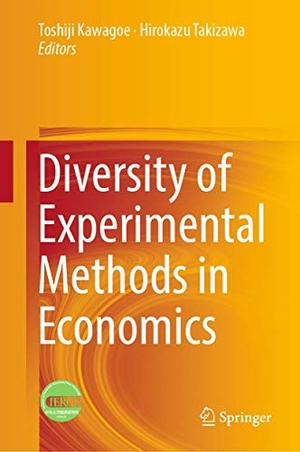Für statistische Zwecke und um bestmögliche Funktionalität zu bieten, speichert diese Website Cookies auf Ihrem Gerät. Das Speichern von Cookies kann in den Browser-Einstellungen deaktiviert werden. Wenn Sie die Website weiter nutzen, stimmen Sie der Verwendung von Cookies zu.
Cookie akzeptieren
Diversity of Experimental Methods in Economics
- Springer Nature Singapore
- 2019
- Gebunden
- 212 Seiten
- ISBN 9789811360640
This is the first book that examines the diverse range of experimental methods currently being used in the social sciences, gathering contributions by working economists engaged in experimentation, as well as by a political scientist, psychologists and philosophers of the social sciences. Until the mid-twentieth century, most economists believed that experiments in the economic sciences were impossible. But that¿s hardly the case today, as evinced by the fact that Vernon Smith, an experimental economist, and Daniel Kahneman, a behavioral economist, won the Nobel Prize in Economics in 2002. However, the current use of experimental methods in economics is more diverse than is usually assumed. As the
Mehr
Weniger
zzgl. Versand
in Kürze